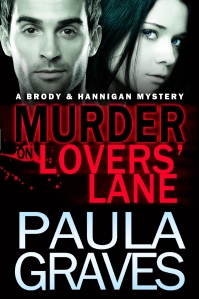I love my state. Let me get that out of the way right now. Call it Alabama the Beautiful, or Sweet Home Alabama, or whatever you want to say. I love the land, from its piney woods to its rolling hills, to the Tennessee Valley, all the way down to its beautiful beaches.
I love the people. They’re a beautiful stew pot of rednecks, entrepreneurs, doctors, farmers, lawyers, writers, artists, layabouts and lunatics. I left for awhile, and I couldn’t wait to get back.
Alabama is my home. And yet.
And yet.
For a place that values its history as much as Alabama does, we sure do end up on the wrong side of things an awful lot of the time. We were on the wrong side of slavery. We left the former slaves in poverty and ignorance. We denied minorities the right to vote. We were on the wrong side of segregation. As recently as 2013, we tried to legislate nearly all of the Hispanics out of the state.
And now, we’re on the wrong side of history. Again.
A federal judge has stricken down Alabama’s same-sex marriage ban, and people here are aghast. How dare we let gays get married? Come on. Making a mockery of your wedding vows should be a right only heterosexual people have! Probate judges have refused to comply with the judge’s order, and Alabama’s moronic chief justice, Roy Moore, has said he will not abide by the judge’s ruling.
(Good luck with that, Roy. You were already removed from office once for failing to follow orders from a federal judge. Let’s see if we can’t make it twice in a row.)
Right now, the judge who struck the law has put a stay on her order to give the state a chance to appeal her ruling. Everyone from the governor to Moore has said they plan to fight this ruling. God forbid we extend equal protection under the law to everyone. Certainly we should never allow a minority to have the same rights as a “normal” person.
I see friends of mine—good people, people I’ve known and loved for a long time—who are upset by this. And I don’t understand it. Frankly, I don’t want to understand it, because at the core of their anger and disappointment is the same fear and bigotry that allowed a man to plant a bomb in a Birmingham church. It’s the same desolation of spirit that allowed protesters to be beaten and killed in Selma during the Civil Rights era.
You can count on Alabama to get it wrong when it matters. You can count on the Yellowhammer State, the Heart of Dixie, to find the worst position on any social issue, and dig in our heels. We find honor in being wrong, and we take pride in having our nose rubbed in the dirt of our wrong-headedness. We will do the right thing, but only if forced to do so. The worst thing of all is that we know we’re wrong about marriage equality. All we have to do is look at our history. We were wrong on slavery. We were wrong on segregation. We were wrong on Civil Rights. We were wrong on the 2013 immigration bill. And we’re wrong now.
I pray one day Alabama will finally get something right. I hope one day we can actually extend civil rights to a minority, and it won’t be a big deal. Maybe you hope for that, too. But don’t hold your breath.






 Let me make sure you realize: I’ve never met, nor interacted with in any form, this writer. He’s not my friend—not even an internet friend. He’s not on my friends list. He had to spend $1 to message me and have it go directly into my mailbox. He didn’t even say hi. Just sent me a pair of links. Not a pair of lynx, because that would’ve been kind of neat. (And a hell of a trick over the Internet, too.) I’m a bit weirded out. I’ve no idea how this guy got my info, nor why he would waste money directly messaging me on FB. And his novel? It’s an homage to Robert B. Parker and John D. MacDonald’s greatest creations. In other words, he’s ripping off someone else’s work. Am I the only one who thinks this is completely weird? Dude spent a buck to market directly to me, and it was a completely wasted dollar.
Let me make sure you realize: I’ve never met, nor interacted with in any form, this writer. He’s not my friend—not even an internet friend. He’s not on my friends list. He had to spend $1 to message me and have it go directly into my mailbox. He didn’t even say hi. Just sent me a pair of links. Not a pair of lynx, because that would’ve been kind of neat. (And a hell of a trick over the Internet, too.) I’m a bit weirded out. I’ve no idea how this guy got my info, nor why he would waste money directly messaging me on FB. And his novel? It’s an homage to Robert B. Parker and John D. MacDonald’s greatest creations. In other words, he’s ripping off someone else’s work. Am I the only one who thinks this is completely weird? Dude spent a buck to market directly to me, and it was a completely wasted dollar.
